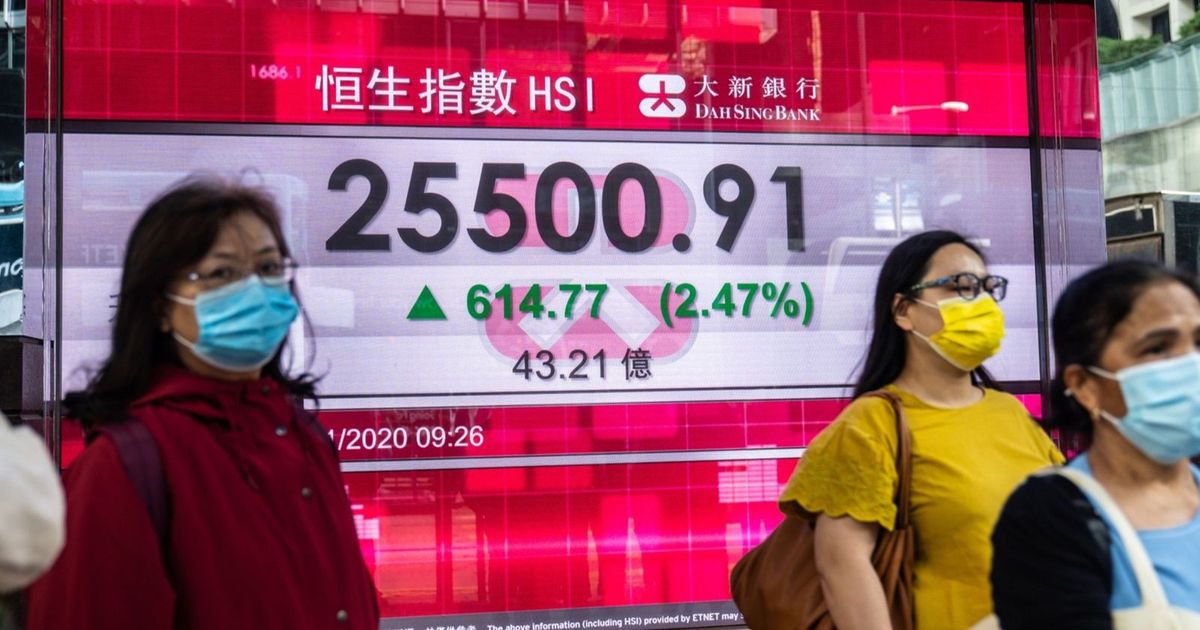Asian shares fell after shares of US regional banks fell amid growing concerns about lending standards. On the other hand, government bonds rose, while gold was on track for gains for the ninth straight week. The MSCI regional stock index fell 0.7%, with financial stocks topping the list of losers. U.S. stock index futures fell 0.3% in Asian trade after the basic indexes fell on Thursday. It came after regional bank shares in the United States fell following the repercussions of the collapse of low-rated auto lender Tricolor Holdings, whose effects extended beyond Wall Street. Gold hits historic high amid rising credit concerns. Gold hit a new record high driven by concerns about credit quality in the US economy and rising tensions between the United States and China. US Treasuries continued their gains, with the two-year bond yield falling to the lowest level since 2022 and the ten-year bond yield falling below 4%. The dollar index also fell, heading for its worst weekly performance since late July. These moves highlight the escalation of concerns over the US credit market, which clearly reflects the state of tension prevailing on Wall Street in light of the previous wave of stocks rising to record levels. These fears are added to a host of other worries troubling investors, including the government shutdown in the United States, fears of a bubble in the artificial intelligence sector and renewed trade tensions with China. “The US banking shock has more to do with market sentiment and liquidity than with a comprehensive credit collapse,” added Dylan Wu, an analyst at Pepperstone Group, “What we’re seeing right now is a clear example of global risk aversion. Economic fundamentals are good, but fear dominates the commercial banks.” Asian losses led by Hong Kong Shares in Hong Kong fell more than 1%, leading declines in the region, with continued tensions with the United States weighing on morale, and technology company shares also fell. The yield on ten-year US Treasuries fell two basis points to 3.96%, while the yield on similar Australian bonds fell four basis points to 4.11%. The U.S. regional banking index, the S&P Select Industry Banks, posted a 6.3% drop on Thursday, its biggest drop since the April rate selloff, in a scene reminiscent of the crisis that rocked the sector in 2023. subsequently fell by 11% disclosing its exposure to the borrowers themselves. Growing caution in Asian markets: The collapse of two prominent companies in a short period of time, the lending company “Tricolor” and the auto parts supplier “First Brands Group,” increased traders’ anxiety about the possibility of new negative news emerging. Asian banking stocks also fell due to these developments. “This will lead to some cautious retreats and take risks off the table, and investors in Asia may be wary of exposures or liabilities in their portfolios that could be hurt,” said Vishnu Varathan, head of economic research for Asia ex-Japan at Mizuho Bank. The Bank of Japan’s moves and the possibility of raising interest rates. Bank of Japan Governor Kazuo Ueda, for his part, indicated that the bank will continue to tighten monetary policy if confidence in the achievement of economic expectations strengthens, leaving the door open to an imminent increase in interest rates. The yen rose against the dollar, continuing its weekly gains. In the Japanese political scene, the leader of the opposition Ishin Party said that the probability of the ruling Liberal Democratic Party forming a new coalition with his party is 50%, as negotiations continue ahead of the parliamentary vote on the choice of the new prime minister. Cutting US tariffs on the auto industry In trade news, the White House is preparing to ease tariffs on the US auto industry, in a move that represents a major victory for automakers that have pushed hard to ease the effects of record tariffs on imports. Traders also monitored geopolitical developments as US President Donald Trump and his Russian counterpart Vladimir Putin agreed to hold a meeting in Budapest during a two-hour phone call, a day before Trump’s meeting at the White House with Ukrainian President Volodymyr Zelensky. As for oil, it is headed for its third weekly decline, with investors focusing on surplus supplies and the repercussions of renewed trade tensions between the United States and China. Brent crude traded near $61 a barrel as Trump said he would hold a second meeting with Putin, raising the possibility that rising supplies from an OPEC+ member would exacerbate the global supply glut.
Asian shares fall amid credit concerns in the United States
